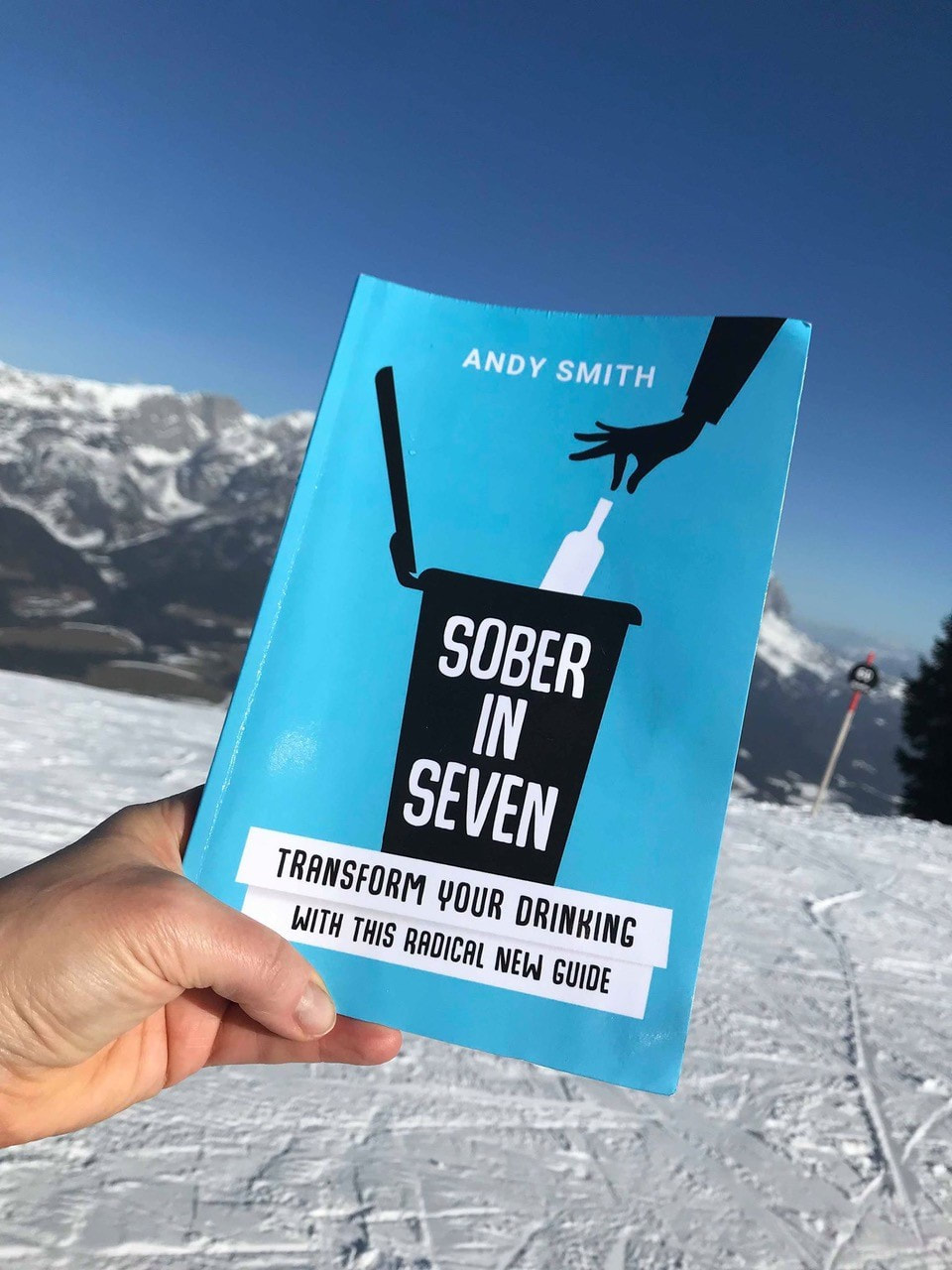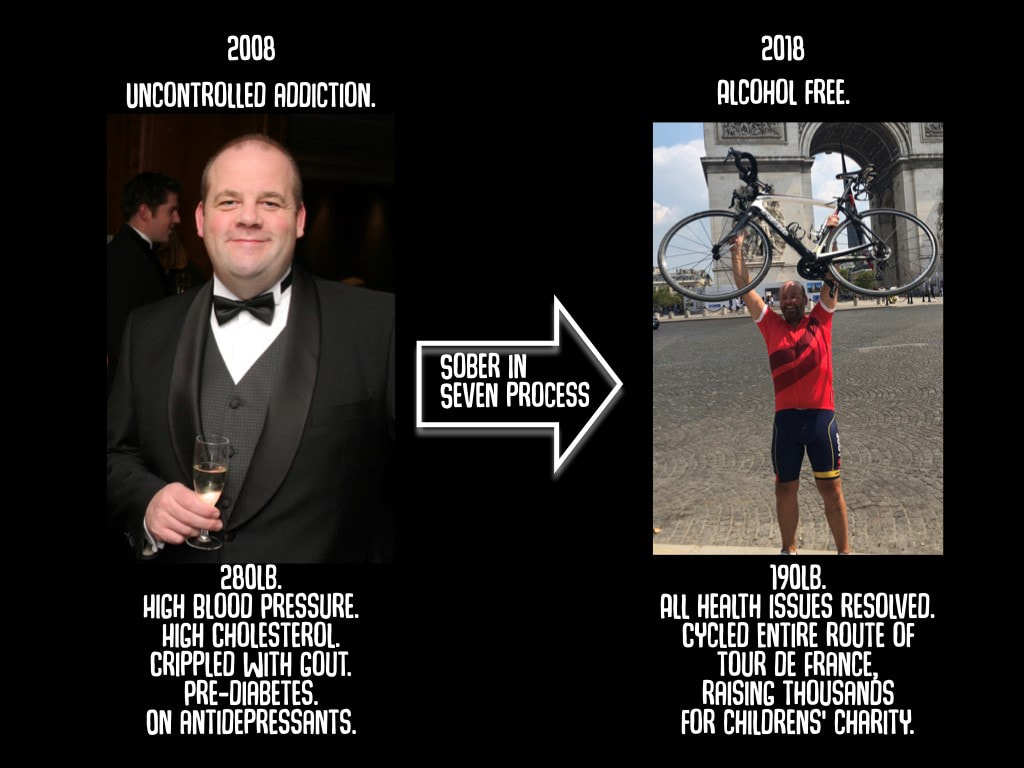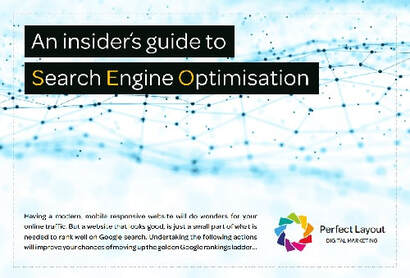|
It’s a new decade and the team at Perfect Layout, are committed more than ever to share the experiences of businesses across the country. Are you currently thinking about starting a business? Ready to get your idea up and running or are you at the point where you would like to expand your offerings to other areas? Whatever your stage of entrepreneurship, this regular blog feature will give you something to think about. We wholeheartedly advocate promoting businesses, to help raise awareness about them and share their highs and lows so that you – our readers - can feel enriched, empowered and encouraged to do better. This month’s interview is with Andy Smith, author and proprietor of Sober in Seven. Tell me a little bit about Sober in Seven. What kind of business is it? It’s an online coaching process for people looking to make a change with regards to their relationship with alcohol. It’s a huge problem and one from which I suffered from myself. I managed to go from a place feeling quite helpless about it, to being in a position where I got my health back and to a sufficient extent that I actually rode the entire course of the Tour de France in 2018 for a children’s charity. I’ve taken the process that I followed and have broken it down into a fairly simple online route guide. I have also launched a book of that programme to help people that aren’t comfortable with their drinking. When did you start setting up this programme? I started setting this up in 2016 and it went live in 2017. So, participants complete sessions online. How did you find the process of developing this system? Did you do any of it yourself? I did the programming myself and I had to learn the process of building a website, of taking money and creating a content platform to deliver it. A lot of the skills that I needed, from the psychological and presentation side of it, I already knew from my career. The tech side of things was probably the biggest challenge. With regards to the participants completing sessions online, I liken it to playing poker. It doesn’t matter if you have all the deck of cards in your hands, if you don’t know the rules, you’ll never win the game. These sessions are basically making you understand which of the tools that you already have in your favour and how to make them work for you. Most people have everything they need in order to make a lasting change with regards to their drinking, they just need somebody to show them the process to find those answers for themselves. Getting on top of this addiction is like unlocking a combination lock, it doesn’t matter if you have 3 numbers of the 20 that might be in it, or 19 of the 20, the net effect is the same. This is a coaching programme that helps people find their missing numbers. This a voyage of self-discovery and you start to understand why you do certain things and you start to put plans in place to do things differently and it really works. It’s one journey with many paths. Do you offer any offline support during the programme or post-course support? Yes. The programme is everything that people need. I also offer three months of daily emails where I deal with all the practical stuff, in relation to making life changes. I’m very hands on with people and sometimes my support extends beyond this time. There is also the facility for people to have a chat with me on the phone. What is the cost for people wanting to sign up? It works out in practice, 2-3 weeks of drink money for somebody. I know there are programmes out there that charge thousands of pounds for a course. I think this is unfair. Help should be accessible to everyone, so my programme is only £100. When I set this up, my goal was not to become a millionaire, but to help people. I got myself into a situation where nobody could help me. When I worked through my process, I realised that I could offer this to so many more people. Maybe that is the reason I was put on this planet. So I try to keep the costs down, but charge enough so that I can do this full time as I want to help more people. Are you happy with the way everything has turned out so far? I’m happy with the process. The book will help me reach a lot more people. Particularly those who are not feeling confident enough to invest in themselves, it’s less of a big step for them. I’m pretty good at giving people hope that I can help them, but it’s also about them being able to help themselves. This is an inside job. I offer the methodology for you to help yourself. Some people find it quite easy, whilst some people find it quite challenging and I’m there to help everyone get through it. What has the success rate been so far? I offer a money back guarantee on it. If people do the programme and it doesn’t work for you, I’ll give you the money back. To date, the refund rate is less than one percent. What inspired you to develop this idea? I think I’ve always been looking for a way to help people, all through my life. There’s always been that little fire inside me. I’ve run happiness workshops in the past. When I thought that I was fairly unfixable, and managed to fix myself, I thought – maybe this was my purpose. Everything I’d learned about selling, influencing and psychology had brought me to this point. Who do you think this program can help? I think it’s for people who are just not comfortable with the amount they’re drinking. There’s no clear definition of what that looks like. I’d say that there are two categories that I tend to encounter most. One is, what I call, the ‘wine o’clock mums’. Women who are running a busy family home, maybe working, or not working outside of the home. They might need a bit of ‘me time’ that turns into 2 bottles of wine. They realise the habit they have created and want to make a change. The other category is men like me, who are successful with a busy career, built on a ‘work hard, play hard’ mentality. Then when they get to their 40’s or 50’s the wheels start to come off. They realise that they need to get off this conveyor belt that they’ve got themselves onto. When I was 50, I felt like I was 70. I’m turning 54 this year and I feel 34. Everyone is amazed at my transformation, not only in how I look, but who I am as a person. I’m now a spin instructor for goodness sake! So has the exercise helped in turning yourself around?
Absolutely! I was in such a bad state, health wise, that I had lost touch with what good health even looked like. My blood pressure and cholesterol were sky high, I had gout and was on anti-depressants. I was not in good shape mentally at all. I was in pain every day. Now I am utterly transformed in that side of things and that’s been a result of not depressing myself with alcohol. Healthy body, healthy mind. What type of feedback have you had for your programme? It’s been extraordinary! I have a secret Facebook group and everybody is helping. I’ve got some amazing transformation stories of people who were in all sorts of trouble who are now like myself, back to being me again. The support and outpouring of love has been awesome. All these people that a year ago were struggling, now a year on they are supporting other people. I feel so emotional being part of all this and reading their stories and seeing how much people have changed, it is one of the most satisfying things to watch. How does this programme differ to the self-help books and programmes that are already in existence? There are lots of books out there which are inspirational but with very little practical help. There are lots of memoire type stuff, but it doesn’t necessarily give you a route out. It might make you highly motivated, and inspired and for a lot of people that is a huge step up, but actually what I’ve got is a journey from A to B. A being out of control and B being back in control. It’s a pretty well-worn path now and it works. Someone described it as a one stop shop. Not only have I been there but I can also share stories that describe the stupid stuff I’ve done I go on this journey with people. We do it together. What was your job before moving into this area of work? I held a variety of senior positions internationally across the healthcare industry. This ranged from sales management, pharmaceuticals, dentistry and veterinary sectors. I have a strong background in physical and mental health and understand the psychology of selling. Tell me more about the book Sober in Seven. What was your prompt in putting pen to paper? It was kind of a retrospective creation. I was at a dinner party talking to someone in the publishing industry and as I was telling her about what I was doing she said, ‘why on earth haven’t you written a book’? Up until that point I hadn’t even considered it and I thought, yes, you’re right actually, I need to get this out to more people. The process of creating it has been relatively painful and long and drawn out – but I’m finally there. I needed to go through it, it was like a birthing process. What has come out of it are stories from people that have been through this process, so there’s loads of great inspirational support in there. It also highlights the different parts of the process that have worked differently for people. It brings the whole thing to life. Where do your customers come from? I.e. do people search for you organically, do you advertise somewhere or use social media platforms? YouTube primarily and then Facebook. With the benefit of hindsight, describe two things that you would have approached differently? I would have written the book earlier and I would have diversified my marketing strategy more. I found a strategy that worked with Google and overnight they changed their policy and it wiped out all my marketing lead potential. So I spent several months experimenting with alternative strategies until I finally found a YouTube strategy that worked. How do you view the future of Sober in Seven? I want to get it out there to the global English speaking world. The next step would be to run more live events. I would love to start travelling again, as I travelled a lot in my business career and I really enjoyed it. For example, I’d love to be able to fly over to New York and deliver a seminar there. Now the stigma is changing, it used to be something that nobody ever talked about. People are a bit braver now about saying that they want to drink less – there’s no shame in it. Forty, fifty years ago, if you wanted to give up smoking, people would say, why do you want to do that, what’s wrong with you. Whereas now, smokers are in the minority, not the majority. Alcohol is going the same way. The stigma is changing, people are more open to saying that their drinking is holding them back. What would your advice be for someone who wants to change their drinking habits, but is uncertain about what next step to take? It’s hard to do it on your own, so look for help. There are different options. There’s the ‘meetings’ route. Or you could work with someone like me. I’d recommend trying to get a clearer idea about the why you want to do it because that is the thing that will sustain you as you change. Start saying, I want to be the partner, husband, wife, father, person that I always thought I would be. There are many different have’s but there’s only one why and it’s your why. Nobody can give it to you, it’s very unique to you. If you would like to know more the work that Andy is doing, why not send him an email or view more about his services via his website and social media platforms Facebook, LinkedIn and Instagram - @soberinseven. If you have a business that you would like to feature in this regular slot, why not get in touch? We’d love to hear from you!
0 Comments
Your comment will be posted after it is approved.
Leave a Reply. |
Topics
All
|
Insider's guide to Search Engine Optimisation
Are you ready to improve your own website? Here's a front-page preview to our guide that can help. Complete the form and download your free copy!
Perfect Layout Digital Marketing
|
HoursM-F: 9am - 5pm
|
Telephone |
|
Copyright © 2024. All rights reserved. Blog policy. Privacy Policy. Photography by Picture Partnership







